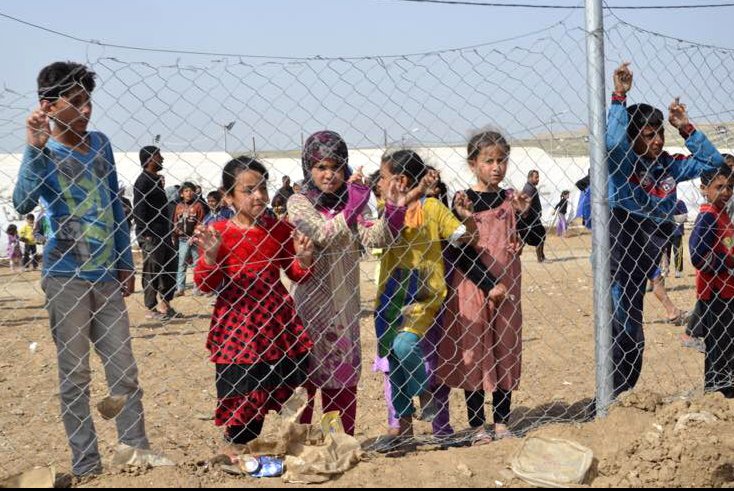"Scores of children have lost their parents in the intense bombardment or in booby traps and suicide bombings perpetrated by ISIS. We have given them names to facilitate sorting them out until we can establish their identity and trace their kin to hand them over," said Sukaina Mohamad Ali, the head of the Office of Women and Children in Nineveh province. Ali, who also runs the biggest orphanage in Mosul, said the organization received children found by Iraqi forces in the debris and near dead bodies. "Most of them had no ID, so we don't know who they are," she said. "They were in a very precarious state suffering from malnutrition and thirst."
Among Mosul's orphans, many are the children of foreign and local IS fighters killed in battle. "We don't know their exact number because they are dispersed in several refugee camps but there are at least 600 of them staying in Hammam al Alil camp," Ali said. "We received 20 boys who ISIS kidnapped from their families to recruit in their children's unit, the Fetiyen al Jinneh. They are aged 8-11 and we were able to identify them and reunite them with their families." Some of the children at the orphanage were Yazidis held by IS. Others were Chechen or from different Arab nationalities and were taken to Baghdad. The orphanage is expecting 1,700 additional orphans in the next stage.
Iraqi displaced children from Mosul, who were forced to flee their homes due the fighting between Iraqi forces and Islamic state group, were living at the Hamam al-Alil camp on April 7. Many children have been orphaned in the conflict
In addition, some 1,500 women married to slain IS fighters, including 10 who are pregnant, sheltered in al-Jadaa refugee camp, fearing reprisals from locals, Ali said. "The scale of social problems facing Iraq in post-ISIS areas is overwhelming. Revenge acts can be expected by families who suffered at the hands of the militants no matter how much the government tries to prevent such acts," she said. While there is no government plan to deal with the problem, attempts have been made to identify the children by posting photos on social media. "We used all possible means and we succeeded in identifying many, especially those aged between 6 and 8," Ali said.
The children are sometimes harbored in private homes by families, volunteer workers and individuals such as Iraqi soldier Mohamad Saleh. "While we were battling in the old city we discovered many children alone near the corpses of women. I took home a 3-year-old boy called Ahmad while his 1-year-old brother was transferred to a hospital in Erbil," Saleh said. "I posted Ahmad's photo on social media, which allowed his uncles to identify him. They took him away after showing me papers proving their relationship." The near total absence of psychological or psychiatric services that could treat the myriad traumas of war will make Iraq's children an even more vulnerable generation.
MORE

